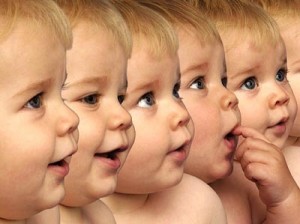Fertility expert Panayiotis Zavos, founder of the Zavos Organization based in Lexington, Kentucky has renewed controversy about human cloning with claims that he made 14 human cloned embryos and transferred 11 of them into the wombs of women.
In an interview with the UK’s Independent newspaper, Dr Zavos said: “There is absolutely no doubt about it, and I may not be the one that does it, but the cloned child is coming. There is absolutely no way that it will not happen.”
But scientists have condemned his work as irresponsible. The British Science Media Centre wrapped up reaction to the claims from scientists including noted fertility expert, Professor Robert Winston.
 Sarah Norcross, Director of Progress Educational Trust, said:
Sarah Norcross, Director of Progress Educational Trust, said:
“Dr Zavos’ claims to have cloned 14 human embryos, and transferred 11 of them into the wombs of four women who had been prepared to give birth to cloned babies, must be read with scepticism because of his failure to publish this work and have it peer reviewed in a scientific journal, and because of his spectacular talent for self-publicity.
“Even someone who supports human cloning has to question the ethics of Dr Zavos’ work, when emotionally vulnerable patients are treated by him and later described in the media as not ‘ideal subjects’, and when the health implications for any resulting children are unknown.”
Alastair Kent, Director of the Genetic Interest Group, said:
“Once again Dr Zavos claims to have mastered almost single-handedly a technology that others have been struggling with for years. Once again he claims to have used it for purposes widely condemned as unsafe and dangerous. And he has done this in secret, using the hopes of couples desperate to create or to recreate a child as a springboard for his vaulting ambition. For his claims to have credibility, and to prevent the unethical exploitation of grieving or desperate couples Dr Zavos must throw open his work to peer review. He must demonstrate openness and allow scrutiny by experts, not just by the media. If he is as good as he claims then he has nothing to fear. If he is not, then vulnerable women and couples need protection from his activities.”
Prof Justin St. John, Professor of Reproductive Biology, University of Warwick, said:
“With regards the claim of the “little girl who could ‘live’ again”, there are flaws to the idea. Dr Zavos is reported as stating that he would never transfer hybrid animal clones into the human womb, but one of the methods he is proposing could do just that.
“He fused DNA from Cady’s blood cells with cow eggs that had been stripped of their chromosomes but the eggs would still contain cow mitochondrial DNA. From our own work generating interspecies embryos and studies published in the literature we know it is possible for low levels of the original human mitochondrial DNA to also be passed on, resulting in an embryo with human chromosomal DNA, cow mitochondrial DNA and a small amount of human mitochondrial DNA. Dr Zavos then proposes a second cloning step fusing of the cells from the embryo with an empty human egg. Again, small levels of mitochondrial DNA could be passed on. Potentially this would result in an embryo with Cady’s chromosomal DNA, but with mitochondrial DNA from her, the cow and now the new human egg.
“The real problem is that the persistence of Cady’s mitochondrial DNA and that transferred from the cow egg would be a random event and one that we could not predict. This outcome is very different to that following conception when we only inherit our mitochondrial DNA from our mothers.
“Mitochondria are the generators of energy in our cells and mixing diverse populations of mitochondrial DNA would almost certainly result in the cells not functioning properly – a scenario that we definitely don’t want.”
Professor Robert Winston, Emeritus Professor of Fertility Studies at Imperial College London, said:
“I do not know of any credible evidence that suggests Dr Zavos can clone a human being. This seems to be yet another one of his claims to get repeated publicity.”
Professor Azim Surani, Marshall-Walton Professor of Physiology and Reproduction at the University of Cambridge, said:
“This whole affair shows a complete lack of responsibility. If true, Zavos has again failed to observe the universally accepted ban on human cloning, which was agreed because most of the resulting embryos from such animal experiments are abnormal. This is yet another episode designed to gain maximum publicity without performing rigorous animal experiments or presenting it for peer review in a scientific journal. He has the opportunity to do this for his claim on making animal-human hybrid embryos in culture.”
Professor Wolf Reik, Head of the Epigenetics and Chromatin Programme at the Babraham Institute, Cambridge, said:
“The interesting thing here is that for the first time these cloning attempts appear to have been documented. We have no reason to think that human cloning will not work (e.g. it works in primates) but it may take many, many attempts. But to say it is substantially safer now, with new technical developments, is nonsense; the available techniques are still very inefficient, and the great majority of embryos die in utero, or are born with abnormalities. This is why, in my opinion, it remains problematical for it to be carried out on humans.
“A clone is no different to an identical twin conceived naturally. But there are important ethical issues here that must be considered. For example, cloning a child who has died will create a genetically identical person; but it will not be the same child. This is most certainly not a way of bringing people back from the dead.”